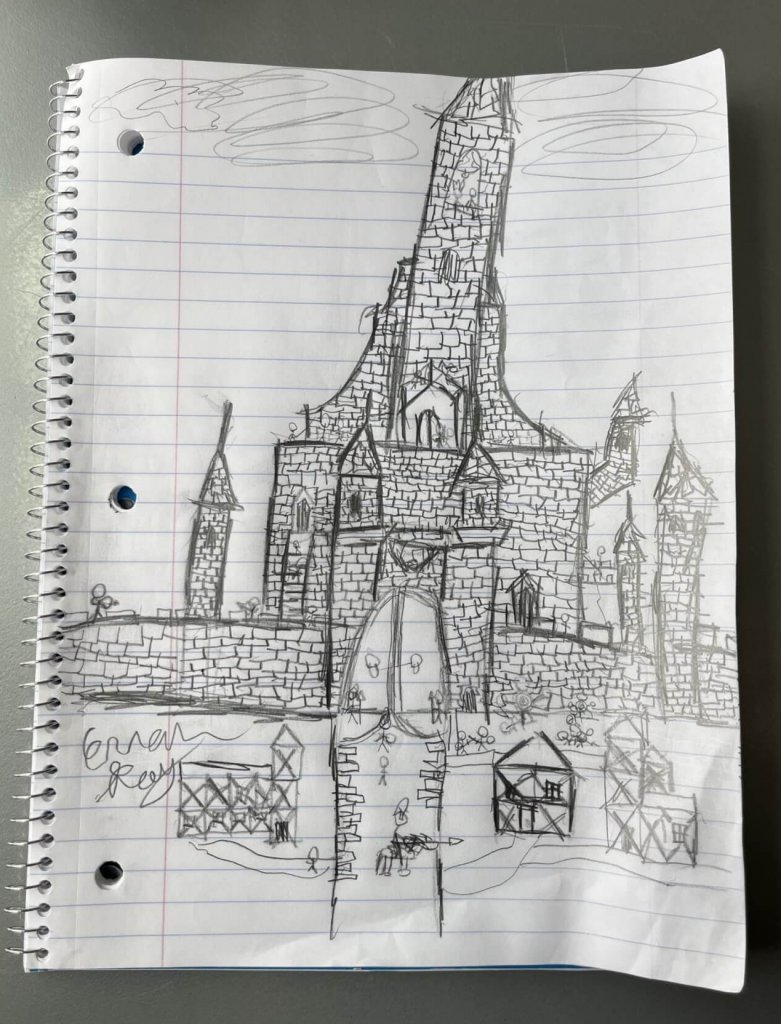AfterWords | The Bells of Christmas Ring with Hope for a Broken World
AfterWords is a series of reflections by contributors as they share their personal experience of God in community at The Parish on Sundays.
- Listen to the original Sunday service podcast this post is engaging with.
- Be notified via email whenever new content like this is added to The Parish blog.
A short read
by Luke Boggs
On January 5, the twelfth day of Christmas, the worship team led us in singing “I Heard the Bells on Christmas Day” during our Sunday gathering.
The words of this carol are from a poem by Henry Wadsworth Longfellow, the most popular American poet of the 19th century. He penned the words of “Christmas Bells” in 1863, in the darkest days of the Civil War, just weeks after the war’s bloodiest battle at Gettysburg, Pennsylvania. The three-day clash produced more than 50,000 casualties.
Longfellow had also suffered personally. Two years earlier, he lost his wife of 18 years in a tragic fire. Months before writing the poem, his eldest son was severely injured in the Battle of Mine Run. While his son survived, it would be a long and difficult recovery.
The song captures a central tension of Christmas: even as God has incarnated into our world, becoming Emanuel—God with us—in the person of Jesus and making way for the ultimate redemption of all things, all is not yet right. Indeed, we cannot miss the darkness around us, the tragedy and brokenness, poverty and violence, hatred and despair, even though the gloom is pierced by the light of Christ.
As the opening words of the Gospel of John explain:
In the beginning was the Word, and the Word was with God, and the Word was God. He was with God in the beginning. Through him all things were made; without him nothing was made that has been made. In him was life, and that life was the light of all mankind. The light shines in the darkness, and the darkness has not overcome it.
At Christmas, we experience the life and light of Christ, celebrating the arrival of a God who loves his people enough to become one of us, putting on flesh and living out the kind of life he invites us to live, one of self-giving and self-emptying love. The darkness is fractured by the incarnation, but it is not dissipated. We live, as Longfellow did, in the knowledge of Christ’s ultimate victory over death, but death is with us still.
“I Heard the Bells on Christmas Day” repeats the hope expressed by the angels to the shepherds, the declaration that Christ comes to bring “peace on Earth, good will to men” while acknowledging the enduring presence of pain and suffering and death. In the end, the song affirms the undeniable redemption of our healer and good shepherd, one who never stops seeking to find and return to the fold the sheep of his flocks.
The communal act of singing these words together, brothers and sisters on Sunday morning, felt like, well, bells: a declaration of stubborn hope, an acknowledgement of the all-at-once-ness of this troubled old world and the good news of great joy for all people.
I Heard the Bells on Christmas Day
Words by Henry Wadsworth Longfellow, music by Johnny Marks
I heard the bells on Christmas Day
Their old, familiar carols play,
And wild and sweet
The words repeat
Of peace on earth, good-will to men!
And thought how, as the day had come,
The belfries of all Christendom
Had rolled along
The unbroken song
Of peace on earth, good-will to men!
And in despair I bowed my head;
‘There is no peace on earth,’ I said;
‘For hate is strong,
And mocks the song
Of peace on earth, good-will to men!’
Then pealed the bells more loud and deep:
‘God is not dead, nor doth He sleep;
The Wrong shall fail,
The Right prevail,
With peace on earth, good-will to men.’

drawing by Evan Ray, 10 years old, during this week’s gathering
There are many modern recordings of “I Heard the Bells on Christmas Day.” I particularly like Frank Sinatra’s 1964 version; I believe it captures the central melancholy and redemptive resolution of the original poem.
Want to contribute to AfterWords? From poems to paintings to a child’s drawing in Parish Kids, we welcome voices from those who call the Parish home. To learn more, email info@parishanglican.org

